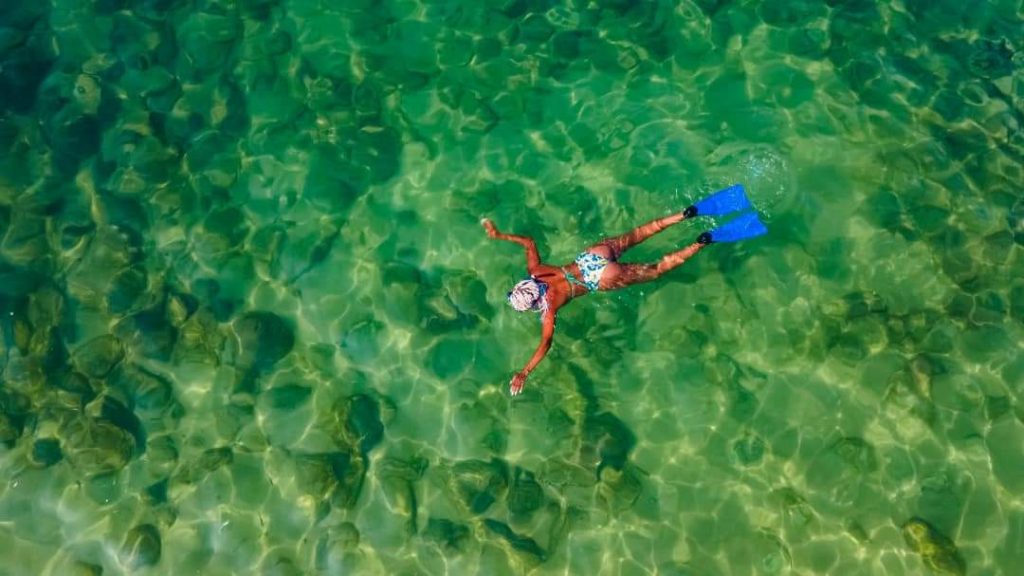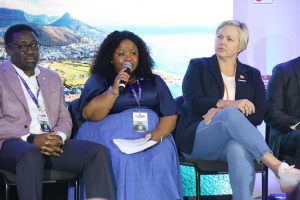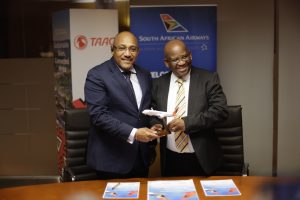Photo: Destination Ghana’; Snorkeling in Axim. Western Region. Documentary photographer Steve Ababio brings more of Ghana to life, showcasing hidden gems such as in this photo.
As Ghana’s tourism lingo switches from “historical enslaved-heritage” to include such experience parlance as “snorkeling, hot air ballooning & paragliding”, alongside the major ‘Year of Return’ campaign that stimulated the capital Accra into becoming West Africa’s new travel salon, the country is expected to unite with the rest of the continent to attend Africa’s Travel Indaba – the largest tourism marketing event on the African calendar – which makes a comeback after a two-year hiatus due to COVID-19.
A flagship of South African Tourism, the leisure trade show is one of the key tools the destination marketing organisation uses to position itself as a major player within the continent’s tourism landscape. PaJohn Bentsifi Dadson finds out what is in store at the comeback Indaba which comes off from May 2 – 5, at the Inkosi Albert Luthuli International Convention Centre in Durban, and says it’s time Ghana established a similar event within its stronghold in the West Africa hub.
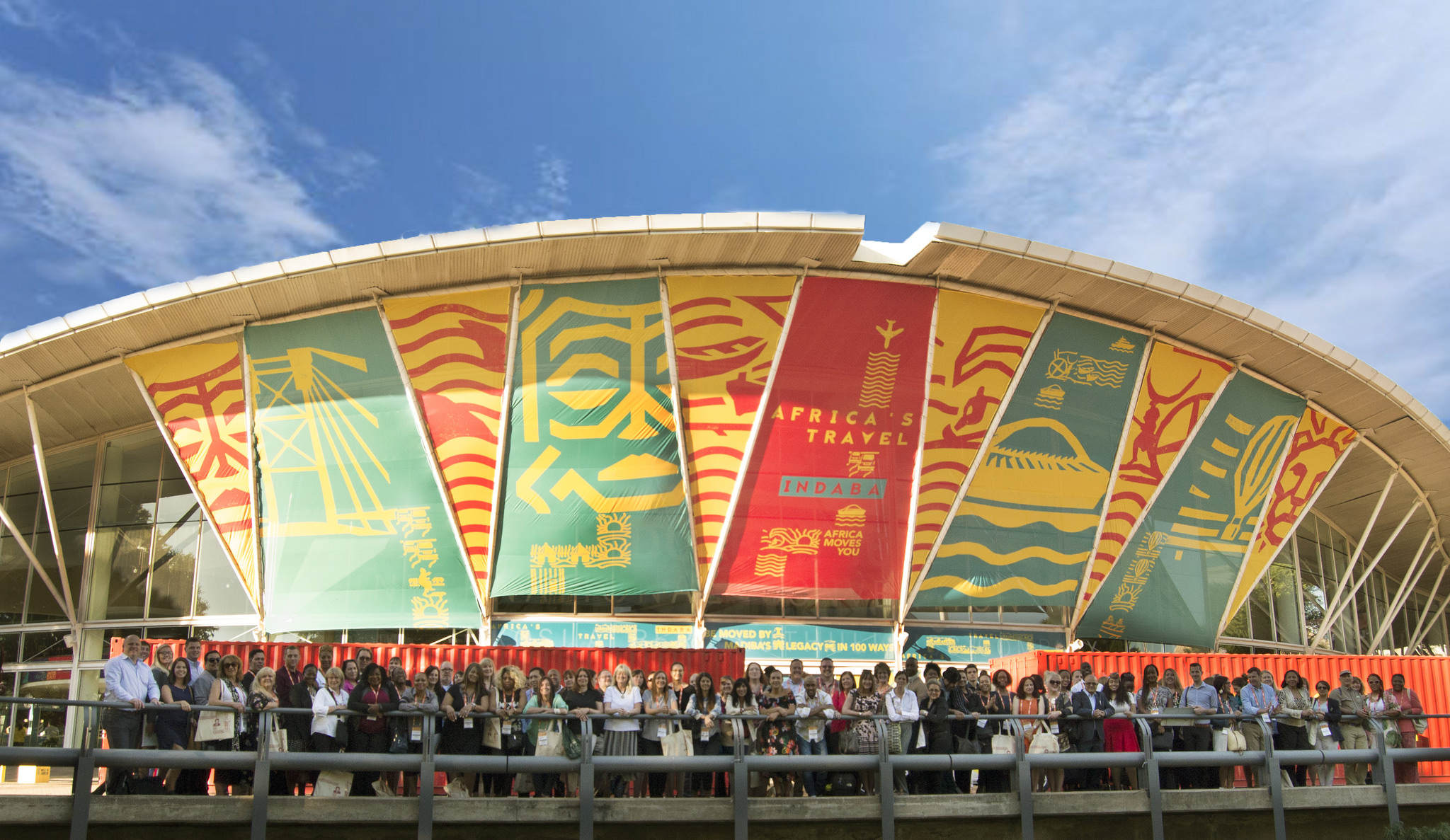
In about 10 days from now, the entire African tourism sector, which is steadily recovering, having remained resilient, following the devastating impact of the COVID-19 pandemic, will gather for the 4-day trade show with a marketplace and meetings, set to take place in Durban, South Africa early May.
One of the top three ‘must visit’ events of its kind on the global calendar, Africa’s Travel Indaba showcases the widest variety of Africa’s best tourism products and attracts international buyers and media from across the world.
Hosting a physical event with limited virtual components, experiences over the last several months have shown that people yearn for physical events and face-to-face encounters and are attending more on-site events than virtual ones.
This actually reveals how important physical gatherings are for dialogue and exchange. There’s nothing more reassuring than that handshake, and warm smile when a deal is struck. Something you can’t get over the telephone.
Africa’s Travel Indaba did not take place in 2020 and 2021 due to global restrictions on movement and immigration regulations necessitated by the COVID-19 pandemic. Along with its protocols of social distancing and enhanced personal safety mandates, things have changed considerably in the way we approach gatherings, especially as related to travel and physical interactions.
Dynamic as we are as people, we have responded well and adjusted in making onsite and location events more safe, having run numerous successfully within the last year or so.
Remaining resilient through the devastating effects of the pandemic, a feat which can never be discounted, “can largely be attributed to the sector uniting, acting and advocating for recovery,” says Themba Khumalo, Acting Chief Executive Officer at SA Tourism. “Now more than ever, this spirit needs to be reignited.”
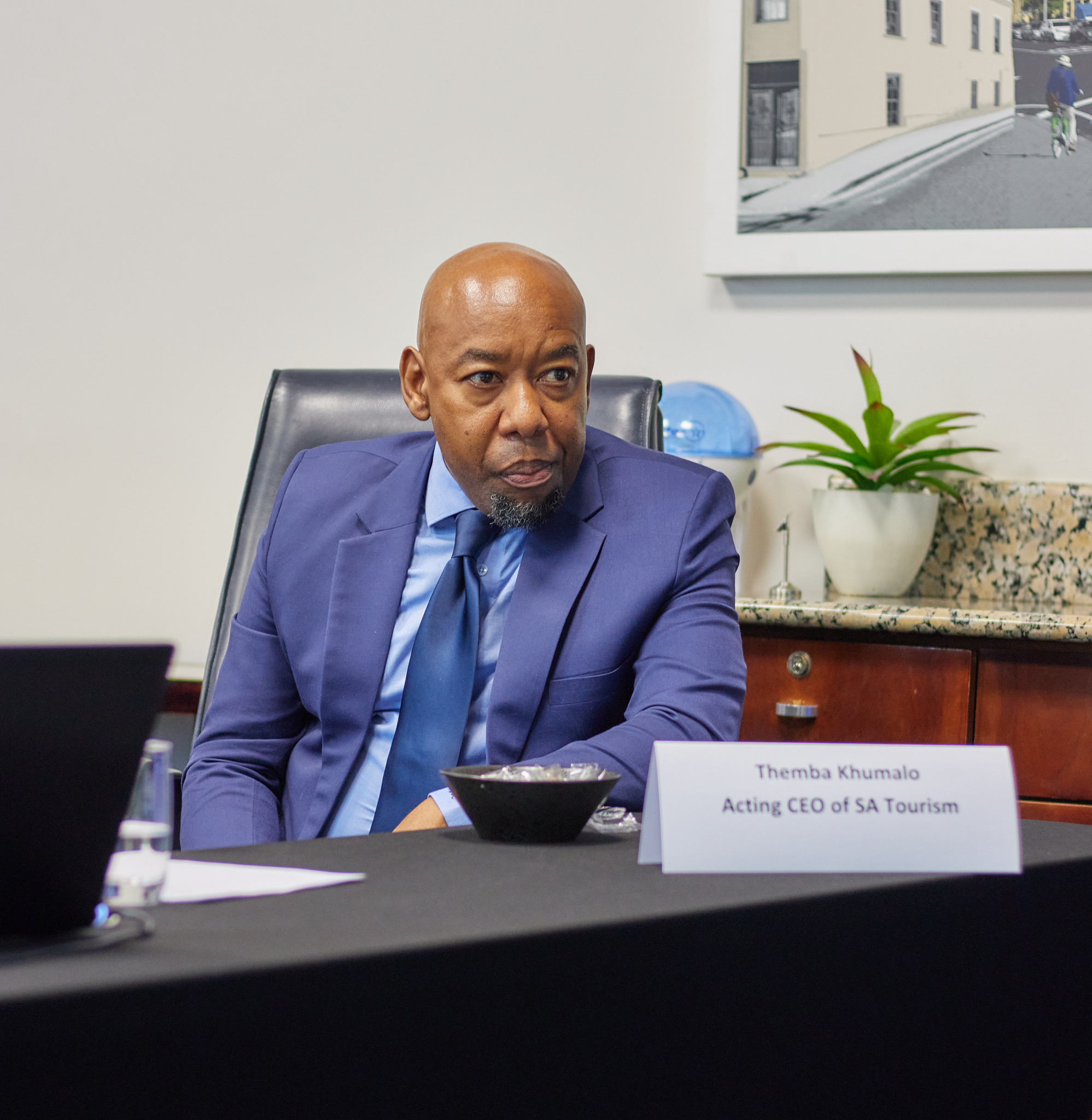
With registration details for delegate participation now open online for players in the industry to be part of the event which promises to bring on an onslaught of new sector innovations, Khumalo says “South Africa is ready and well prepared to welcome delegates from across the world.”
But changes in the tourism landscape, exciting as they may be, present stark and competitive challenges that need stringent controls and licensing regimes to sanitize the digital disruption that is taking place all over the world, and particularly, here in Africa.
“Airbnb vs hotels, Uber vs Taxis/car rentals” are all global disruptions that regulatory agencies are struggling to deal with,” contends Akwasi Agyeman, CEO of Ghana Tourism Authority (GTA).
Again, tourism is not just leisure and recreation. A huge, and increasingly consistent chunk, comes in the form of business events, which is essentially traveling to attend meetings and events in different destinations across the globe. This type of tourism, guaranteeing arrivals also guarantees revenue spend, as they are often corporate sponsored.
Here in Ghana, for instance, around 30% of international arrivals come for business meetings, conferences or some other corporate or leisure event.
This is what led to the government, seeing the potential, tasking the GTA to set up its convention bureau, also known as the MICE Unit, to target the MICE – meetings, incentives, conferences & exhibitions/events – tourism market.
Building capacity in this area requires that the country digs its heels in, and differentiate itself as the “go-to” for tourism in West Africa, as South Africa has done.
The West Africa sub-region alone commands a huge market, and with the Secretariat of the African Continental Free Trade Area (AfCFTA) cited in Accra, Ghana should continue to lead in the tourism discourse with the establishment of an attractive event that draws in industry players, vendors, buyers, media and visitors.
Author: PaJohn Bentsifi Dadson
This article was first published by Ghana’s Daily Graphic


